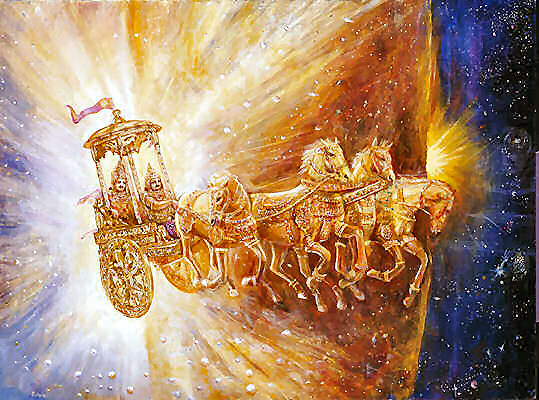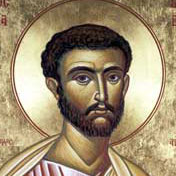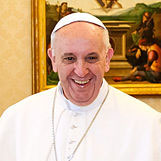A Year 12 RE student recently asked me to assist her in an assignment on Catholic moral theology.
She is investigating the question, What is the Catholic Church’s view on death and preservation of life and should this change? Her assignment requires her to research a variety of sources.
What’s of an interest to one, may be interesting to many, so I’m posting my answers here. (They are by no means exhaustive!)
1. What teachings within the Catholic Church have led to the strong opposition against euthanasia?
- The Ten Commandments.
“Thou shalt not kill.” (Ex 20:13, Dt 5:17)
- The sanctity of human life, as a reflection of the holiness of God.
“Do not slay the innocent and the righteous.” (Ex 23:7)
- Our stewardship — not ownership — of life, a gift given by God.
“It is I who bring both death and life.” (Dt 32:39; cf. 2 Kg 5:7; 1 Sam 2:6)
- The doctrine of the Resurrection, and its implications on our lives and death.
“If we live, we live to the Lord, and if we die, we die to the Lord.” (Rom 14:8)
- The doctrine of redemptive suffering, sharing in Christ’s suffering.
“I may know him and the power of his resurrection, and may share his sufferings, becoming like him in his death, that if possible I may attain the resurrection from the dead.” (Phil 3:10-11)
“Now I rejoice in my sufferings for your sake, and in my flesh I complete what is lacking in Christ’s afflictions for the sake of his body, that is, the church.” (Col 1:24)
- The unanimity of the Church Fathers. Insofar as ancient Christian scholars discuss euthanasia, they are all against it. “Mercy killing” was not uncommon in the ancient world, but Christians — like their Jewish forbears — always condemned it. St Augustine:
It is never licit to kill another: even if he should wish it, indeed if he request it because, hanging between life and death, he begs for help in freeing the soul struggling against the bonds of the body and longing to be released; nor is it licit even when a sick person is no longer able to live.
- Vatican II, Lumen Gentium (1965), no. 27:
Whatever is opposed to life itself, such as any type of murder, genocide, abortion, euthanasia or wilful self-destruction, whatever violates the integrity of the human person, such as mutilation, torments inflicted on body or mind, attempts to coerce the will itself; whatever insults human dignity, such as subhuman living conditions, arbitrary imprisonment, deportation, slavery, prostitution, the selling of women and children; as well as disgraceful working conditions, where men are treated as mere tools for profit, rather than as free and responsible persons; all these things and others of their like are infamies indeed. They poison human society, but they do more harm to those who practice them than those who suffer from the injury. Moreover, they are supreme dishonour to the Creator.
- Congregation for the Doctrine of the Faith, Declaration on Euthanasia (1980).
- Pope John Paul II, Address to the scientists of the Pontifical Academy of Science (1985).
- Pope John Paul II, Evangelium Vitae (1995).
2. Why do you believe that Euthanasia is so controversial within the Catholic Church?
It is controversial because it is a hard teaching. It is a terrible thing to watch someone you love suffer, and it is tempting to conclude that euthanasia is the better course.
3. Why is the practise of Euthanasia so destructive to today’s society?
Speaking personally, and quite apart from my concern for immortal souls, I think euthanasia is extremely damaging to the social contract. Firstly, legalised euthanasia would leave the aged and the dying extremely vulnerable to judicial murder. It simply isn’t possible to legalise euthanasia and guarantee that it will always be voluntary. It’s too easy for others to pressure a person who is ill or dying — be it implicitly or explicitly — to be euthanised. There’s no way to police that.
Secondly, legalised euthanasia would radically change the role of doctors, nurses and other medical care-givers. Legalised euthanasia gives them a right — and in some circumstances an obligation — to kill another person. It turns on its head the ancient Hippocratic Oath to “do no harm.” So legalised euthanasia is not only a threat to society’s most vulnerable citizens, but also a threat to medical carers, whose role would take a radically different shape. I would never wish that upon them.
4. Why is it that the Catholic Church supports the tampering of life to prevent death but opposes the tampering of life to bring upon death? Are both a rejection of God’s plan?
This is a very good question because it raises a popular misconception. Catholic moral theology rejects not only euthanasia, but also “vitalism.” By vitalism, I mean prolonging life at all costs.
Life is a very good thing — it’s the fundamental human good, in fact — but it is not an absolute good. That means that life can be sacrificed for a greater good. Jesus did this on the cross, and it was he who famously said, “Greater love has no man than this, that a man lay down his life for his friends.” (Jn 15:13)
The absolute good is God. Put another way, love, truth, beauty and goodness are absolute goods. These goods (or gifts) transcend life because they give meaning to life. If life is prolonged “at all costs,” then life is prolonged even at the expense of love, truth, beauty and goodness. Here the Catholic Church is in agreement with the Dignitas crowd: prolonging life at all costs cheapens life, and violates the dignity of the human person.
Therefore, it’s not correct to say that the Catholic Church supports the tampering of life to prevent death — not in an unqualified way, anyway. Imagine a person who is terminally ill with cancer. In the course of her treatment she is afflicted with kidney failure. Dialysis can prolong her life, but only for a short time. It won’t cure the kidney failure, and she’s still dying of cancer. This person is perfectly entitled to declare, “My time has come,” and decline treatment. Moreover, if she lapses into a coma, and the decision is left to her family, there are circumstances in which they are morally obliged to decline additional treatment.
The Church encourages proportionate treatment, which can only be identified on a case-by-case basis. It depends on the age and prognosis of the patient, the complexity and expense of the treatment, and the physical/psychological/
Similarly, it is permitted to proscribe painkillers — like morphine — even in doses that lead to death. The reason for this treatment is pain relief; to withhold treatment would be its own evil since you’re inflicting unnecessary suffering. This is “letting die,” as opposed to “direct killing.”
If “tampering with life” — be it to prolong life or accelerate death — doesn’t offend love or truth or beauty or goodness, then it accords with God’s plan. But if such tampering occurs at the expense of love or truth or beauty or goodness, then it is a rejection of God’s plan.
5. Do you believe that the Catholic Church’s view of Euthanasia should change and why do you believe this?
No. The Church’s teaching on euthanasia is based on two thousand years of Christian tradition. It is the fruit of prayerful reflection on the Scriptures, and the thoughtful consideration of holy and sincere men and women. In other words, it’s the fruit of faith and reason.
The Church’s position on euthanasia is very clear cut, and doesn’t allow for a change:
Abortion and euthanasia are crimes which no human law can claim to legitimise. There is no obligation in conscience to obey such laws; instead there is a grave and clear obligation to oppose them by conscientious objection.
John Paul II, Evangelium Vitae (1995), 73.
If the Church was to suddenly condone euthanasia, it would turn its back on 2,000 years of inherited wisdom, which is tantamount to turning its back on the Holy Spirit. “The Catholic view” of euthanasia is Jesus Christ’s view of euthanasia. If the Church changed its view, it would no longer speak for Christ, thereby betraying its raison d’etre.






Thank you Father John for taking the trouble to educate this student on life matters. The questions are framed in a manner which makes me uneasy – they seem to infer that the Church CAN change her teaching on life and death and that it’s quite OK for a young student to tell Her how and why She should. And what controversy within the Catholic Church regarding euthanasia? Straw man! Sedition!
An interesting lecture I heard ab0ut 11 years ago on euthanasia offered the point that greatest evil of killing a terminally ill person was that the person was being deprived of his dying: a time when perception can change to enable to dying person to see things as they really are – a reality check, if you will and thereby an opportunity to forgive, to reconcile with estranged family members, to receive the grace of repentance for sins in life not thought of as sins until now and the embrace the Cross.In this sense it is a similar diabolical idea to abortion; prevent souls from occupying the places in heaven left vacant by the rebellious angels.
Burke J. Balch, J.D., director of the Robert Powell Center for Medical Ethics, affiliated with the (U.S.) National Right to Life Committee, was the speaker at a Right to Life Australia conference.